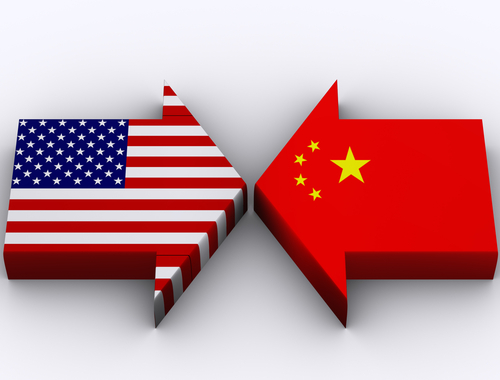US orders closure of Chinese consulate in Houston, Beijing vows retaliation
US State Department spokeswoman Morgan Ortagus said the consulate was directed to close “in order to protect American intellectual property and Americans’ private information”

By Aditi Bhaduri
The United States government has ordered China to “cease all operations and events” at its consulate in Houston, Texas, according to the Chinese Foreign Ministry, in what it called an “unprecedented escalation” in recent actions taken by Washington.
According to CNN late Tuesday evening, police in Houston said they responded to reports of smoke in the courtyard outside the consulate, located on Montrose Boulevard, in the city’s Midtown area.
US State Department spokeswoman Morgan Ortagus said the consulate was directed to close “in order to protect American intellectual property and Americans’ private information” but did not immediately provide additional details of what prompted the closure. Chinese media reported that the consulate had been given 72 hours to close.
In a separate statement the State Department spokesperson said that China “has engaged for years in massive illegal spying and influence operations” and that those “activities have increased markedly in scale and scope over the past few years.”
Beijing has responded angrily to the US order to close down it’s consulate in Houston, vowing retaliation.
Wang Wenbin, a spokesman for China’s foreign ministry, said China was notified on Tuesday that it must close the consulate within 72 hours. In a regular daily news briefing, he described the action as an “unprecedented escalation” and said China would “react with firm countermeasures” if the U.S. does not revoke the decision.
Ties between the two countries have deteriorated over the past few months because of an ongoing trade war, the Covid-19 pandemic, US criticism over China’s human rights abuses in Xinjiang, Hong Kong and Chinese incursions in the South China Sea.
More recently, on Monday, July 20, the US House of Representatives unanimously passed an amendment to the National Defense Authorization Act (NDAA), slamming China’s aggression against India in the Galwan Valley and its growing territorial assertiveness in and around disputed areas like the South China Sea.
“At this rate, I wouldn’t even be surprised if Trump decides to sever diplomatic relations with China someday,” the Washington Post quoted Chu Shulong, a professor in American politics and diplomacy at Tsinghua University as saying, suggesting that this was part of President Trump’s reelection strategy.
There is speculation that China ight ask the US to close down it’s consulate in Wuhan, where the Covid-19 pandemic broke out.
Relations between the US and China have probably not been worse than theytare now ever since diplomatic relations we’re established in 1979.